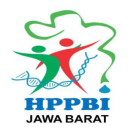The Efforts to Improve Computational Thinking in Science Learning Through Canva Application
DOI:
https://doi.org/10.37150/rebion.v4i1.2010Abstract
This research is conducted driven by the low manifestation of learning skills of the 21st century and the era of the industrial revolution 4.0. This can be observed from the low ability of students in computational thinking skills (Representation/Abstraction, Decomposition, Algorithms, Pattern recognition) in working on questions. In addition, students are more attracted to play with their smartphones than learning. The purpose of this study is to analyze efforts to improve students' computational thinking skills through the application of the digital canva application to the topic of “Environmentally Friendly Technology". The subject of the study was class IX, randomly selected from a Public Middle School in Sukabumi City using two learning cycles which saw an increase in the results of the learning process. The results of the study show that there has been an increase in the computational thinking skills 38% of students achieved minimum completensess criterion scor in cycle 1 and to 77% did in cycle 2. The indicators of computational thinking skills that can be developed in cycles 1 and 2 are Abstraction, Decomposition, Algorithms , and Pattern Recognition. The increase in learning outcomes (gain) for each computational thinking skills indicator in cycle 2 was greater than in cycle 1 because there were efforts by the teacher to improve the learning process.
Downloads
Published
How to Cite
Issue
Section
License
Copyright (c) 2023 Report of Biological Education

This work is licensed under a Creative Commons Attribution-NonCommercial-ShareAlike 4.0 International License.










